I can’t believe we’re already a week into 2019. It means one fifty-secondth or 2% of the year has already gone. It also means, according to Statistic Brain, that 27% of New Year’s Resolutions have already failed. How cheery.
If your resolution for 2019 was to be kinder to the planet, reduce your carbon footprint and live more sustainably, however, hopefully this post will help you keep – and succeed – at your goal. The start of a new year is as good a time as any to make a change, after all.
*****
In November last year I booked flights to Montreal. On a complete whim, without much thought or research, when I saw the return flights for £88, I just booked them. Yep, less than £100 for return flights to Canada. Naturally, I was excited to share my most money-saving travel deal to date, so posted about the flights on Facebook, asking my friends for recommendations of things to do in Montreal, places to stay and (most importantly) where and what to eat and drink during my trip.
I received suggestions for bars and recommendations for poutine, and lots of ‘wow, wish I could come’ comments. And then there was a comment from a friend asking: “Do you ever worry about the amount of CO2 emissions your jaunts create?” It was apparently a “genuine question”.
So, after a bit of thought (possibly more thought than I actually gave to booking the flights), I replied with a genuine answer: “No, not particularly.”

Why I don’t worry about my carbon footprint.
I sound like an arsehole, right? Eco-warriors around the world are probably reading this, shaking their fists and thinking: “How can she be so callous about climate change? She’s single-handedly destroying our planet with her far-flung travels.”
But I’m really not an arsehole, and I’m not destroying Earth – not single-handledly anyway. Of course I care about my personal carbon emissions, about the effect I’m having on that hole in the ozone layer, but I don’t worry about it. There are loads of things I actively do (see below) to reduce my carbon footprint, and thus minimise the impact my travelling has on the planet. But I know that my jetting off four or five times a year isn’t even going to cause a ripple in the sea of climate change.
As In These Times eloquently puts it, “unless you’re extremely wealthy or in the top brass of a multinational corporation, you probably don’t need to need to worry all that much about your own role in fueling the climate crisis.”
According to its research, just 100 companies have been responsible for 77% of global carbon emissions since 1988. The richest 10% of people in the world are responsible for nearly half of emissions rooted in personal consumption – while the poorest people contribute approximately 10%. So if you’re looking for a culprit in the climate crisis, you should look beyond travel bloggers like myself.
Personal consumption matters, especially in the northern hemisphere. But the consumption of the rich and the companies they run, matters more.
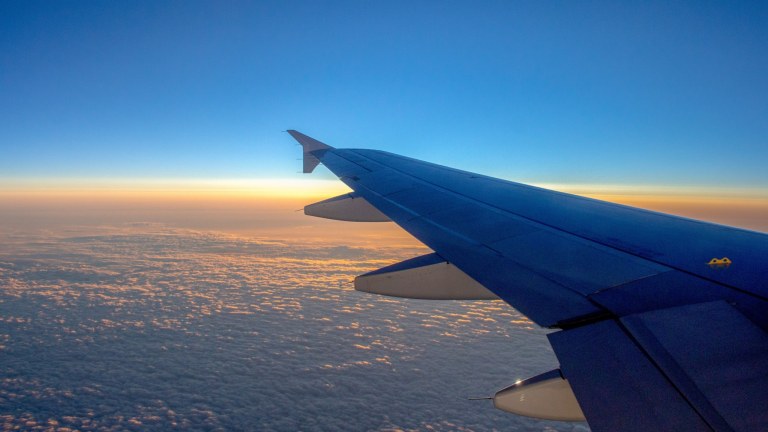
Ways to reduce your carbon footprint when travelling.
As I went on to explain to my friend with the genuine question, planes will always fly, regardless of whether I’m on them or not. For example, I once took a flight with just seven passengers aboard. That airline undoubtedly paid more for staff wages, fuel, aircraft maintenance, airport fees, government fees, food and drink served to those seven passengers, the cost of running computer systems to track bookings, travel agent and flight booking website fees, pilot training and other incidental costs, than it made revenue from seat sales.
But the airline didn’t cancel the flight because it hadn’t filled all the seats, or because of concerns about the empty plane’s emissions impact on the ozone. And although the plane was empty, its emissions would’ve been only slightly less than if it’s flown with a bum on every seat (due to weight and fuel consumption). Therefore, surely it’s better to be on a flight and ensure it’s flying to maximum capacity, so the personal carbon footprint of each passenger is less? Just a thought…
Anyway, I do plenty of things on a personal level, both at home and while abroad, to minimise my impact on the planet. I believe that a little extra care when planning a trip – and a little extra effort during it – can reduce your carbon footprint, allowing you to travel more sustainably while still experiencing all that a country has to offer.
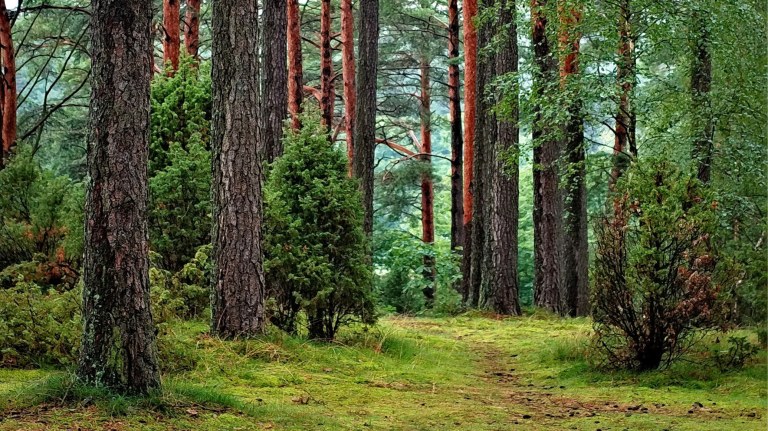
Below are just some of the “green” things I do, which I believe go some way in compensating for any negative affect my trips have on the planet:
1. Fly economy class.
If you’re going to fly, economy class is the more environmentally friendly option. I’ve flown business class once, and only because it was the cheapest way to get from London to Belfast. Every other flight has been economy, which has a far lower impact on my carbon footprint than flying business.
Can’t understand why? Imagine air travel to be like road travel, comparing a bus carrying 55 people and a car carrying five. Both vehicles produce similar levels of emissions, but when you split the emissions by the number aboard, the carbon footprint of each person on the bus is considerably less than those in the car. It’s the same with business versus economy on planes.
Britain’s own Prince William sets an example here, by flying economy class – unlike Prince Alwaleed bin Talal al-Saud, who converted an entire plane into a palace.
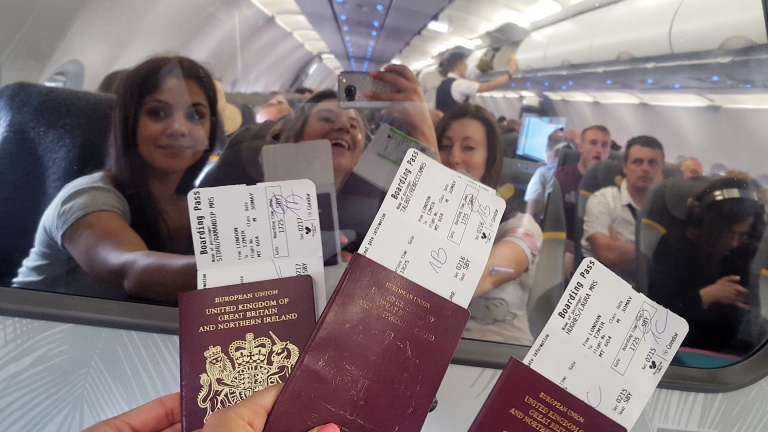
2. Keep luggage to a minimum.
This goes without saying really, but as my blog name suggests, I “always carry on”. Even when I spent 27 days in Colombia, I only took a carry on case.
Travelling light means I not only save money on flights (some carriers can charge up to £50 each way for hold luggage) and save time when landing and getting out of the airport, I also reduce my personal input on the plane’s emissions, because travelling lighter means less weight, which means less fuel consumption.
3. Reuse water bottles.
Anyone who knows me knows I drink a lot of water. So I always reuse water bottles on any flight, road trip, hike or sightseeing tour. This keeps the several plastic bottles I might have used during the trip out of landfill, and again, saves money. Though I haven’t got one of these yet (hint hint, if anyone’s looking for a gift for me), but if you’re travelling somewhere where drinking tap water isn’t advisable, get a reusable bottle with a built-in filter. This means you can save money on bottled water, save the planet from nonbiodegradable plastic and drink tap water without the worry of tummy troubles and spending your trip in the bathroom.
Also, if you like a tea or coffee on the go, bring a travel mug with you. Many coffee shops now allow you to bring your own cup, and some even offer discounts to customers with reusable mugs. If you were to get a coffee every weekday, on your commute to work for example, that’s about 260 paper cups and plastic tops that you’d be saving from landfill.

4. Don’t waste food.
As a child, I was taught to eat everything on the plate in front of me – regardless of whether I liked it or not. It’s a mentality that’s still with me now, some 30-years later; so if I’m in a restaurant, I always try to eat everything I’ve ordered.
I despise food waste. I get annoyed when I’m at an all-inclusive resort buffet restaurant and I see people piling their plates with mountains of food they’re just going to leave. And I get even more irritated when it’s in a country where, outside of the resort’s confines, local families are struggling and relying on handouts from food banks.
To ensure I’m not wasting food (or money) at home, I only buy food I know that I’m able to consume. For example, about a year ago I stopped buying milk; I could never finish even the smallest carton before it turned sour (even when sharing it with my cats), so I’ve switched to instant coffee sachets instead.
Planning, preparation and creativity are essential for reducing personal food waste. Living alone and only ever cooking for one makes it a challenge, as a lot of food comes in family-sized portions. But it’s a challenge that’s resulted in an appreciation for Tupperware. Batch cooking and freezing dishes like bolognaise, chilli con carne and casserole is the way forward. For more tips, check out this BBC Good Food article on how to reduce food waste.
5. Don’t waste water.
I’m sure you’ve seen those little cards (sometimes a sticker, strategically stuck on the mirror so you can’t miss it while brushing your teeth) in the hotel bathroom, sharing how many gallons of water it takes to wash the sheets and towels each day. By now those cards are so familiar they’re easy to ignore. But in the interest of the environment, don’t ignore them. Laundry accounts for 16% of an average hotel’s water usage, according to the Environmental Protection Agency. So cut down on the laundry load, save water and other resources by hanging up and reusing your towels, and only request clean sheets when absolutely necessary. If I’m only staying somewhere for a week (or less) for example, there’s no point changing the bedding unless it’s covered in sand or something.
Saving water at home isn’t difficult either – especially since I had a water meter fitted, letting me see exactly how much I’m using. I take showers instead of baths, I turn the tap off when I brush my teeth, and I only ever boil the amount of water I need in the kettle.
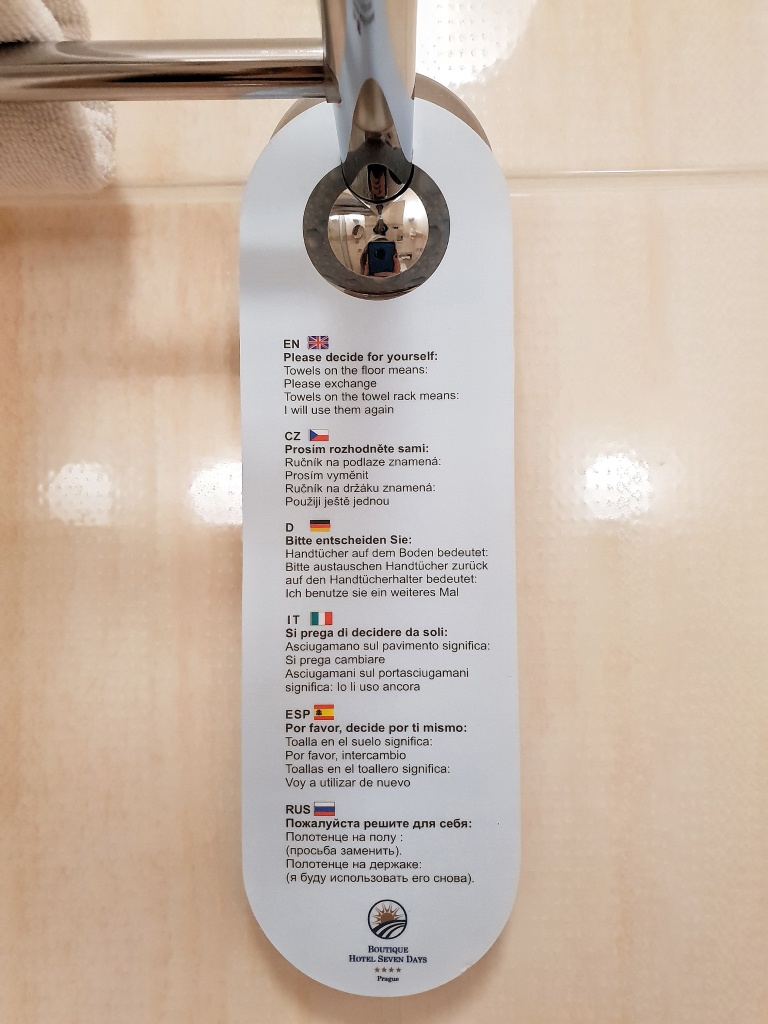
6. Don’t waste gas and electricity.
That leads nicely onto my next point: wasting power.
Having previously worked as a journalist at the UK’s biggest money-saving website, I know all about reducing power consumption to save money on energy bills – but I never really appreciated that less power also meant being more environmentally friendly. I’m pleased to say though, long after leaving that job, I still practise my money-saving/energy-saving/planet-saving ways. For example, I unplug my phone as soon as it’s finished charging, I turn off lights as I leave a room, and I don’t heat my house unless I’m there. Oh, and if I had a TV (which I currently don’t), I’d turn it off at the set, rather than leave it on standby using the remote.
When you’re travelling, whether staying in a 5 star luxury resort, an Airbnb or a hostel, always treat your accommodation like you would if it were you paying the power bills. Turn off lights you’re not using, take shorter showers and keep the thermostat at a reasonable temperature – or turn it off altogether if you’re going out. There’s no point having the aircon or heater on when you’re not in the room, so stop thinking you’re clever for figuring out that the power stays on even if you’ve left the room if you stick a diners club card into the key card slot. It’s not big and it’s not clever, it’s wasteful.
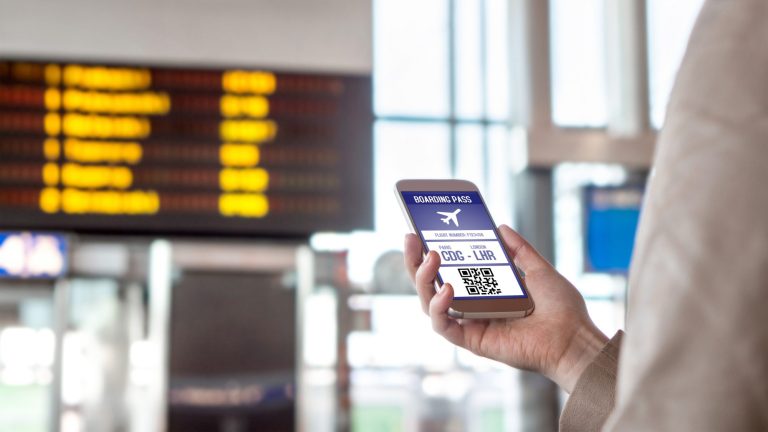
7. Reduce your waste levels altogether.
While you’re at it, why not reduce as much of your personal waste as you can?
Limit the amount of single-use plastic you use when travelling and at home. Don’t buy anything unnecessary. See all those condiment sachets over there, do you really need six packets of salt and four ketchups? You’re only going to use two of each, but once you’ve touched them, your waitress can’t put them back into the condiment bowls (in case you’ve injected them with poison or something), so they’ll go straight in the rubbish bag, and then straight to landfill, wasted and unable to biodegrade.
The temptation to buy myself new clothes is strong, especially when I’m being advertised to left, right and centre – but I can usually avoid it, preferring to spend my money on travel and experiences. I’m not embarrassed to admit that when I do buy myself ‘new’ clothes, they are often from charity shops. I feel better about giving the money to charity and putting something to use, rather than sending it to landfill. And when I have unwanted clothes, I’ll either donate them to charity or sell them on Facebook marketplace or at car boot sales (which can fund further travels).
I stopped using single-use carrier bags long before they were chargeable in the UK (mainly because Tesco gave green Clubcard points if you brought your own bags with you – and Clubcard points could be used for Avios points, which can be used for free hotel stays). I’ve also switched to paperless bills and e-boarding passes wherever possible. Not only is this easier than having to file endless documents, but it has drastically reduced both paper usage and the effect of transporting all that post to me. I’ve also registered on several databases so I don’t receive junk mail – and any that I do receive goes straight into the recycling.
8. Recycle all that can be recycled.
I recycle everything that can be recycled: card, paper, glass, tin cans, drinks cans and hard plastics. I get a strange satisfaction seeing my recycling bin being more full than my waste bin. And even when travelling I try to recycle wherever possible. Though an Airbnb in Santo Domingo that I stayed in took recycling and sustainability to a whole new level…

9. Buy local.
I try to buy local produce and products wherever possible – both at home and when travelling. This allows me to sample the local cuisine and absorb as much of the local culture as I can, without fear of contributing heavily to the climate crisis.
Buying from a farmer’s market, an independent butcher or green grocer that sources their produce from local farms means your food will have travelled less ‘food miles’ than supermarket produce. Did you know that the average vegetable travels approximately 1,500 miles to get to your plate? Buying local therefore saves fuel and reduces carbon emissions.
10. Use public transport.
For the most part I use public transport at home. I spend nearly five hours a day commuting to and from work using South West trains, despite the fact that it would be quicker if I drove. And if I need to get to the airport, I usually prefer to take the train – as it saves on parking and is better for the environment.
If you’re travelling to a city with a reliable public transport network, the greenest option is a no-brainer. Check out the public transport options in your destination city before departing – you might be surprised what you find. I certainly was with many of the European countries I’ve visited, especially Hungary and Croatia. Their trains, trams and buses were frequent, clean, quick and cheap.

11. Walk walkable distances.
I am a big, big fan of walking – I walk as much as possible, to get from A to B and also for pleasure. Some of my favourite spots for walking in the UK include Spurn Point and the Trans Pennine Trail, near where I used to live up in East Yorkshire.
When abroad, I like to just wander aimlessly and see what I stumble across. From amazing street art in Oslo and colourful streets in Amman to a clowder of cats in Kouklia in Cyprus, walking is not only a healthier and more environmentally friendly mode of transport, but also allows you to find hidden spots in the city you might not have ever seen if travelling on a bus or driving.
12. Rent a bike.
Sometimes you just can’t get cram it all in when on foot, though. That’s when you should get on your bike – or if not your own, hire one. Bicycles and motorised bikes are good options for travellers who want the freedom of individual travel with the benefits of reducing their environmental impact. I’ve hired bikes when in Paris and Mexico – and managed to travel a lot further than I would have been able to walking, while also working on my tan in the sunshine.
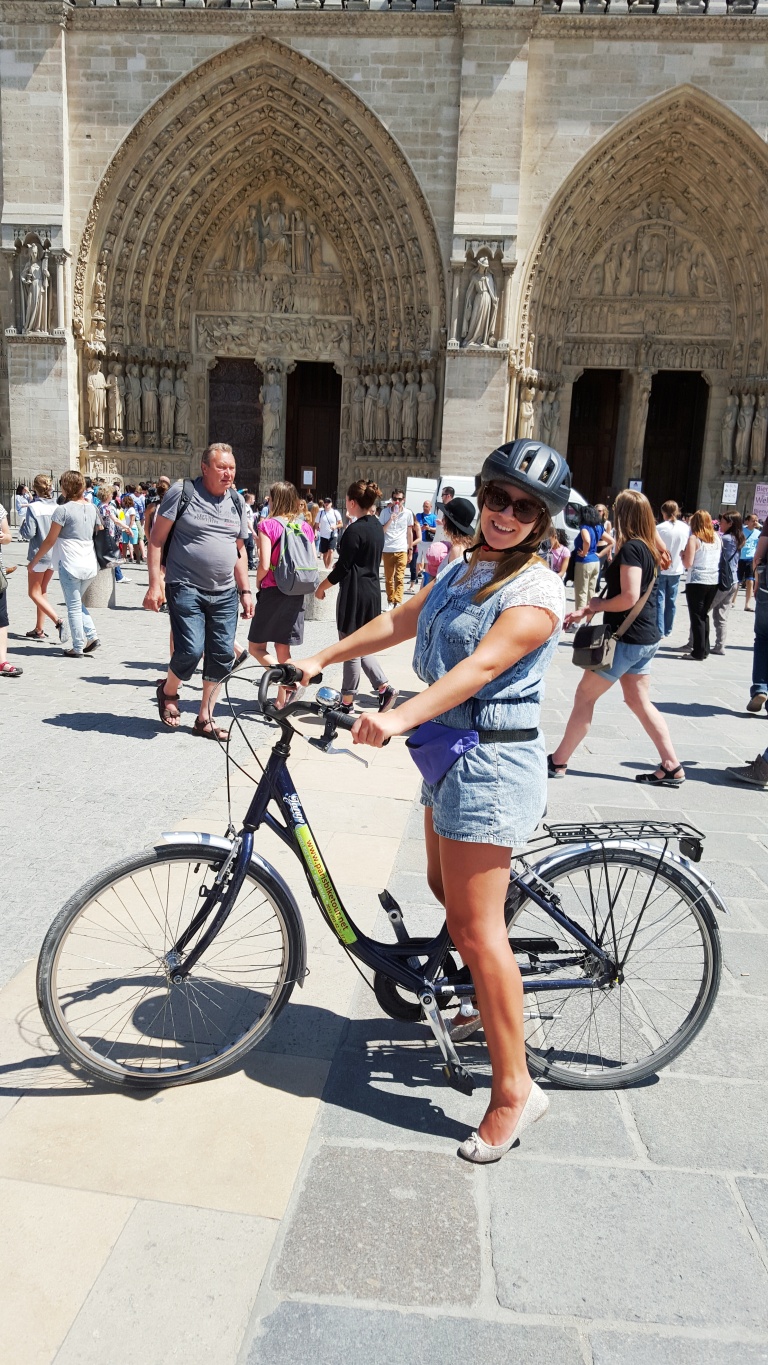
13. Eat less (red) meat.
All meat is relatively resource intensive, but beef in particular is a huge greenhouse gas emitter. A lot of articles published over the last few months have emphasised the importance of ditching meat to fight climate change – even switching to eating chicken over beef is preferable. Though I’ve never been a big fan of beef, and rarely eat lamb, I do like pork products and fish – so I’d find it difficult to go 100% vegetarian right now. Nevertheless, my meat consumption is considerably less than most.
To those that think Veganism is the answer (perhaps you’re partaking in that fad Veganuary?), check out this post on why going vegan won’t save the world…
14. Don’t have children.
Ok, a little extreme, but if someone doesn’t exist, they don’t have a carbon footprint, right? This reasoning might seem cynical and at the same time stupidly obvious, but it’s also true. According to Population Matters, having one fewer child is 25% more effective in cutting carbon emissions than living without a car.
Having children means driving to school every day, multiple loads of washing per week, buying and cooking more food, and probably having quite a few more electronic devices plugged in around the house than a single person living on their own. As I have no children (and don’t plan to pop any out any time soon), I know that my carbon footprint is considerably less than families with children.

*****
There’s obviously loads more I could do to reduce my impact on the planet when travelling. Things like carbon offsetting and flying directly wherever possible (or at least a flight path with minimal stop-overs), as well as less hotels and more camping. And travellers who are serious about seeing the world while remaining eco-friendly should explore ecotourism. Defined by the Nature Conservancy as “environmentally responsible travel to natural areas,” ecotourism emphasises conservation, education, traveller responsibility and active community participation, and is a way to explore our world without stressing its resources.
Are you concerned by climate change and the impact your travels have on the environment? If so, what have you done to try to minimise your carbon footprint? Is there anything else I could do – both at home or while travelling – to reduce mine?
Also, if you have any suggestions or recommendations for Montreal, I’d love to hear them!
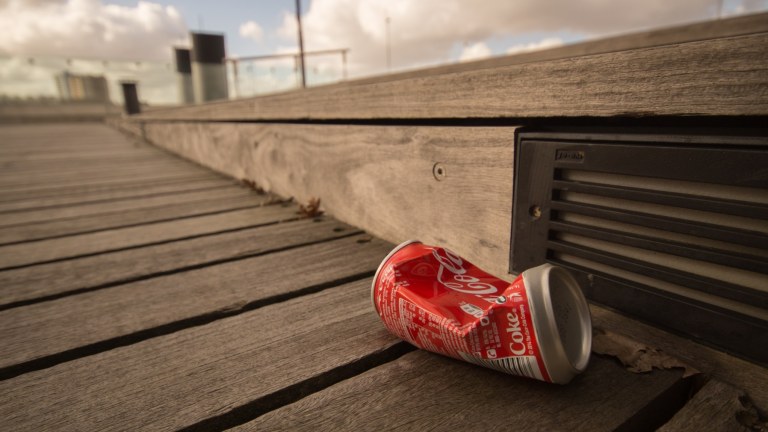

SO many great tips here. I think that it is so important to be mindful of the environment that we are in when traveling.
LikeLiked by 1 person
Thank you for the valuable information and tips.
LikeLiked by 1 person
I must admit I do most of these things to do my part except for recycling for some reason.
LikeLiked by 1 person